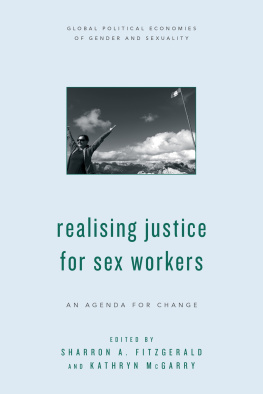To deem transactional sex inherently exploitative lacks information, and imagination. Lets imagine an agenda for change for sex workers as a body. The law is the bones. The dynamics of sex workers lives are the muscles. Our discourse is the blood.
A chiropractor will tell you that muscles can pull your spine out of alignment, that even when you get adjustments, muscles aligning poorly from bad posture or stress will pull on the vertebrae. You mightve felt this before, when anxious, how your chest muscles tug around and towards a racing heart, and they are indeed strong enough to drag your backbone with it.
For an improved situationthe bodyfor sex workers, the infrastructure we need includes laws that articulate around the various intersections of the chaos of our lives. Laws that serve the body as bones, to support and follow the movement of muscles that ache, flex and stretch in our specific yet pedestrian pursuit of a livelihood in modern times.
The stress of modern life that all humans face is steeped in our relentless need to earn a living.
Sex workers greatest obstacles result from our work being set apart from all other work. This means that we are refused labour rights until we can portray our work environment as ideala picture of work seen in no other sector of this capitalistic patriarchy.
Sex workers bear the heaviest weight of countless years of suppressed sexuality throughout society, of being told the parameters of how and why we can have sex. We have for millennia been on the receiving end of cultures deepest misogyny. It does not inspire or inform that sex work is the oldest profession. It was the first thing women were allowed to do for money. It was the only thing.
Its essential to understand our experience within the context of work, and take pains in relation to this unique work to accommodate the realities of the lives of the people in it. It is no use fighting for protective measures for workers only if we dont do drugs, have mental health issues, or arent homeless, for example. Some of us who sell sex are these things; some might even find sex work the best work based on these qualities. These people deserve to be safe too. To truly honour the concept of choice, we must acknowledge the personal agency that is exercised even in making difficult decisions.
When we dont have legal flexibility to work according to our unique circumstances, the only available options are illegal, are on the black market. Criminality thrives in an illegal landscape. People who seek to exploit us prefer this illegality, as illegal paths are then the only paths available to us, and we have no legal redress for our exploitation. The combination of factors that lead to peoples vulnerability to traffickers and exploiters cannot be blamed on mens desire. They are the result of the dire imbalance of wealth on the planet.
If a sex work abolitionist were to say that arguing for decriminalising the sex industry is like saying, Well, poverty exists, so lets just make more poorhouses, Id respond, Poverty exists, so while we fight together for measures to not only alleviate poverty but to change the systems that perpetuate it, we cannot demolish the poor houses. In fact, lets ask the residents how to make them better.
If we are going to have control within our work, control our platforms, design our businesses so they are less precarious, we need the support to do this legally. Weve got to be heard about what we say we need to draw our own personal blueprints.
Abolitionists are wasting precious time, and minds, meddling with our means of survival simply because transactional sex turns their stomachs. Why does it not turn their stomachs that their strategies compound the problems of the very people they purport to protect?
The bare motivation for abolitionists is in the belief that all women will not be free as long as women are selling sex. However, as long as anyone has to sell anything, we must adopt realistic measures for safest work. We must campaign and legislate for clients to follow the terms of transaction, we must stop polluting minds by insinuating anyone who buys sex is a monster, and we must encourage cultural appreciation of sex workers and the value of our work. We must acknowledge and stress the legitimacy of sex workers consent, and until then no woman will be safe. Expressions of consent are already more complex than current conversations allow. If the right for women to express or use their sexuality stops with sex workers, women will never have full autonomy.










 The paper used in this publication meets the minimum requirements of American National Standard for Information SciencesPermanence of Paper for Printed Library Materials, ANSI/NISO Z39.48-1992.
The paper used in this publication meets the minimum requirements of American National Standard for Information SciencesPermanence of Paper for Printed Library Materials, ANSI/NISO Z39.48-1992.